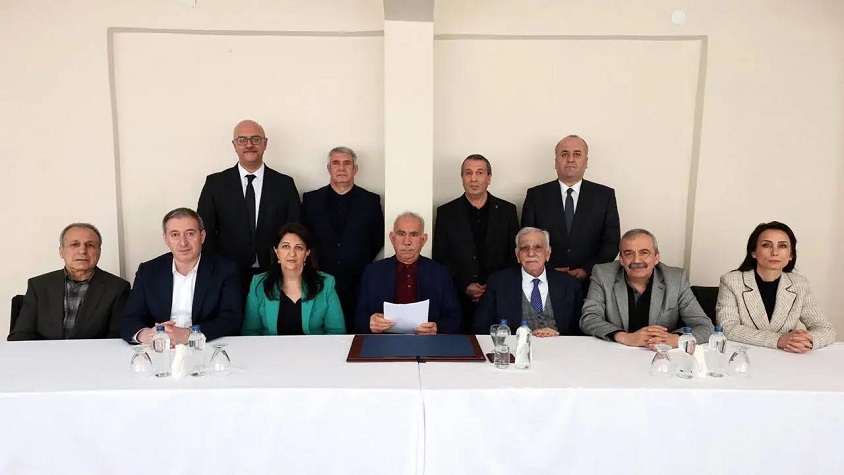Peace cannot be the Affair of Only Two Parties
By Fehmi Vergili | Co-President of the European Syriac Union
Among the peoples who have borne the heaviest burdens of the prolonged conflict between the Turkish state and the Kurdistan Workers’ Party (PKK), the Syriacs occupy a primary place. The armed clashes and long-standing security policies in Turkey have not solely involved the state and the PKK. The consequences of this war have directly impacted Turks, Kurds, Syriacs, Armenians, Alevis, Arabs, Laz (a Caucasian minority in Turkey with their own distinct language), Circassians, and many other peoples. Each has endured trauma, mourning, and loss. Yet some of the above peoples — especially those whose voices have been suppressed — have become increasingly invisible in this conflict.
The Syriac people are among the most silent and least spoken about. However, they are among the most profoundly affected victims of this decades-long conflict. Since the 1980s, as violence escalated, dozens of Syriac villages have been cleared out, thousands have been forced into exile, tens of unresolved political assassinations [“Faili Meçhul”] on Syriacs have occurred, and oe of Mesopotamia’s most ancient peoples has been driven to silence and near-erasure on its ancestral lands.
For these reasons, peace cannot be built by two parties alone. It must reflect the voices, the pain, and the rightful demands of all peoples living in the country.
The Peoples’ Demands for Peace
1 – The Peace Process Must Be Inclusive and Pluralistic
It must not be reduced to a technical negotiation between the Turkish state and the PKK. Rather, it should become a broad, participatory social process involving all peoples who live on these lands.
(Without the inclusion of historically marginalized peoples, such as the Syriacs, peace will remain incomplete.)
2 – Equal Citizenship and Recognition of Identities
The new constitution must explicitly recognize the identity, language, and culture of every people.
(The Syriac people, with thousands of years of heritage and deeply rooted presence, demand recognition as full citizens. Public use of the Syriac language is an essential component of this recognition.)
3 – Protection of Cultural and Religious Rights
The constitution must guarantee the language, faith, and cultural rights of all peoples.
(For Syriacs, this includes legal ownership of church properties, freedom of worship, and the right to train religious leaders.)
4 – Addressing Forced Displacement, Losses, and Violations
Peoples forcibly displaced — particularly the Syriacs — must have the right to return, to reclaim depopulated villages, and to receive material and moral compensation. Unsolved political assassinations must be investigated, state archives opened, and justice must be done.
5 – Genuine Participation in the Peace and Constitutional Processes
Peacebuilding and constitutional reform must involve not only a limited number of political parties but also representatives of all peoples, religious communities, and civil society organizations.
(A peace that excludes those who have no seat at the table will not endure.)
Conclusion: True Peace Begins with Recognition
If Turkey truly seeks lasting peace and genuine democracy, it must recognize the identities, languages, suffering, and legitimate demands of all the peoples living within its borders. Without the Syriacs, the history of these lands is incomplete — and so is any vision of peace.
Peace is for all.
Democracy is for all.
Rights are for all.
Fehmi Vergili is the Co-President of the European Syriac Union. You can follow him on X @TonyVergili and Facebook.
The views expressed in this op-ed are solely those of the author and do not necessarily represent those of SyriacPress.






















